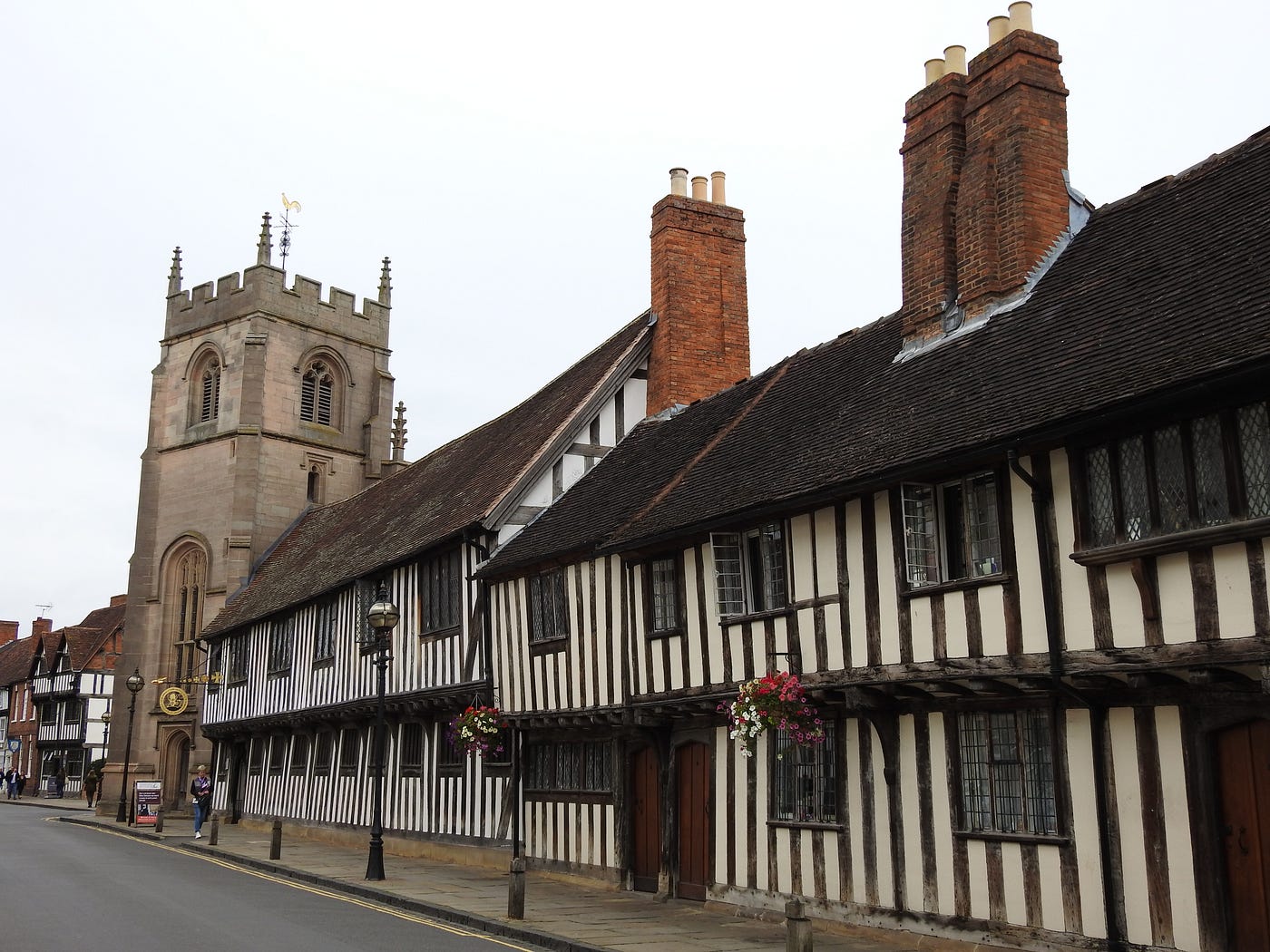Why Did Shakespeare Write About Italy So Much
Was Shakespeare Actually Italian?
England's greatest poet may not have been English
![]()

On the 23rd April 1564, a legend was born in Stratford-upon-Avon. Or was he?
 W illiam Shakespeare is considered one of England's greatest writers ever. His legacy has continued on for 500 years since he graced Elizabethan England thanks to his huge body of work. However, despite the national pride he evokes in us Brits, a whopping thirteen out of thirty-seven of his plays were either based in Italy or around Italian characters.
W illiam Shakespeare is considered one of England's greatest writers ever. His legacy has continued on for 500 years since he graced Elizabethan England thanks to his huge body of work. However, despite the national pride he evokes in us Brits, a whopping thirteen out of thirty-seven of his plays were either based in Italy or around Italian characters.
Over the years there has been a lot of debate surrounding Shakespearean authorship. Some question how someone of Shakespeare's non-aristocratic background could have had such worldly knowledge. There's been a huge list of Englishmen backed to be the 'real' Shakespeare, which includes Sir Francis Bacon, the Earl of Oxford.
However, Sicilian-born Martino Iuvara took the argument up a notch with his book entitled Shakespeare era Italiano. It translates simply to "Shakespeare was Italian". It's a bold claim but Italy has appropriated Shakespeare in many ways; even the wall outside my apartment building in Venice had an enormous Shakespeare mural. Let's hear his theory out.
What's in a name?
Iuvara argues Shakespeare was actually born as Michelangelo Florio Crollalanza in Messina, Sicily. His surname supposedly literally translates as 'shake' (crolla) and 'spear' (lancia). Although a quick search in Google Translate reveals that the verb crollare means to collapse not to shake. One would hope a master of words like Shakespeare would know the difference.
Crollalanza's parents were Giovanni Florio and Guglielma Crollalanza, and it was from his mother that he adopted the anglicised and masculinised name William. In the midst of the Reformation, his father published and spread his Calvinist views attacking the Catholic Church, which put his life at stake. His family fled to the Veneto region to seek refuge, where coincidently four of Shakespeare's plays were set.
In Venice, his father owned a home called "Casa Otello" which had been built by a man who murdered his wife in a jealous rage. On his travels to get there, the Italian playwright supposedly fell head over heels for a girl named Giulietta. Yet her family disapproved of their union, which resulted in Giulietta taking her own life. Sound familiar?

To be (Italian) or not to be?
From Venice, Crollalanza continued onward to England where he took on the identity of a maternal cousin who had passed away. This theory works in line with the Bard's birth certificate naming Stratford as his home. From the moment of his arrival, the Italian Crollalanza supposedly slotted into the life of William Shakespeare.
There are a few pieces of writing found from the sixteenth century that Iuvara uses as evidence for his theory. One was a play called Tanto Traffic Per Niente, which corresponds to Shakespeare's Much Ado About Nothing. The work was written in the Sicilian dialect and attributed to Michelangelo Florio Crollalanza. There was also a book of sayings by the same author and some of these matched up to parts of Hamlet.
Iuvara's findings are also corroborated by an event that took place in 1936. An Italian medium, Giacomo Bellotti, claimed to have received a parchment from the late Shakespeare himself which revealed his Italianness. The apparition apparently revealed "his real name was Crollalanza" and he published books of poetry "under the pseudonym Michelangelo Florio" whilst on the run from the inquisitors (Shaul Bassi, 2016).
Comedy of errors
The theory that Shakespeare was Italian isn't necessarily a new one, it goes back even further than Bellotti. For example, there was a 1929 pamphlet entitled Shakespeare sarebbe il pseudonimo di un poeta italiano, ("Shakespeare would be the pen name of an Italian poet"). However, some scholars now believe that this theory may have originated in confusion — playing out much like the cases of mistaken identity in Shakespeare's comedies.
Originally, a different Michelangelo Florio was claimed to be Shakespeare. He was the father of John Florio, who was a translator, poet, playwright, linguist, and lexicographer at the Elizabethan court. With those linguistic skills and their Italian origin, the duo wasn't an awful guess. However, the fluidity of this theory, changing tack as to best fit a randomly selected name, doesn't do much for its validity.
Whilst on the subject of errors, there are some mistakes found in Shakespeare's plays that uncover a gap in his knowledge of all things Italy. Wouldn't a well-travelled Italian have known that the landlocked city of Milan didn't have a seaport, as Shakespeare described in The Tempest?

Much ado about nothing?
It's a very romantic notion, that a young Crollalanza travelled Europe falling in love and being inspired by his beautiful surroundings and stories he heard. But perhaps we shouldn't be so quick to count out an Englishman capable of possessing the language, culture, and knowledge of Italy. Shakespeare wrote during the Renaissance so it's not that unusual that Italy was such a large focus of his work.
In fact, much of Elizabethan literature and art was heavily inspired by the Italian Renaissance, so maybe Shakespeare became rather taken with the colossal movement that was sweeping Europe. Perhaps he simply read other sources (like translated Italian novellas) or spoke with those who had visited. Perhaps he himself visited and spent some time there. Or maybe a playwright named Crollalanza was a ghostwriter for some of his cousin William's plays!
When it comes to Shakespearean authorship there are plenty of theories flying around, but in this case, too much of the argument is based on his name being an anglicised version of Crollalanza, and that because he liked writing about Italy, he must have been Italian. While scholars have been curious about Shakespeare's knowledge of Italy, the idea that he was Italian is largely discredited. All's well that end's well.
Why Did Shakespeare Write About Italy So Much
Source: https://historyofyesterday.com/was-shakespeare-actually-italian-7baaf03b3717
Publicar un comentario for "Why Did Shakespeare Write About Italy So Much"